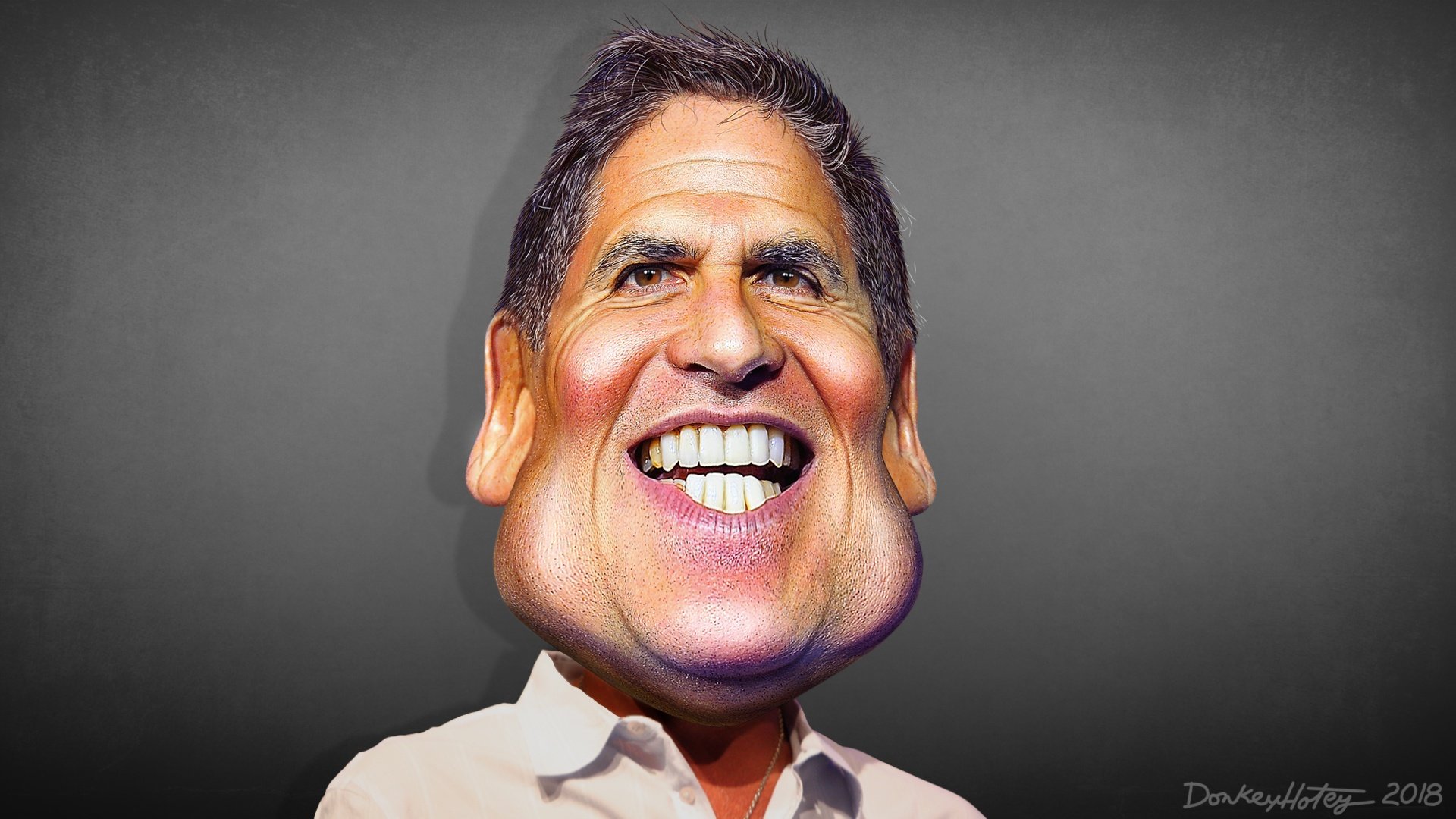When news broke in the summer of 2006 that Mark Cuban was entering the journalism game as the sole investor in Sharesleuth, a website dedicated to exposing stock fraud and corporate misdeeds, it caused much ethical pearl-clutching across the media landscape. Twelve years later, the site and its founder, Chris Carey, are still plugging away—but no longer under the spotlight. It's an example of just how much journalism has changed since those days.
Sharesleuth is the brainchild of longtime business reporter Carey -- who pitched the site idea and secured funding from Cuban without ever meeting him; it was all done through e-mail. The controversy over the site began when Cuban disclosed his plans to use the dirt dug up by Carey to trade on stocks before stories were published.
In journalism school, they would call that a conflict of interest. But Cuban was never one to do things by the book. And today, of course, ethical considerations in journalism are far more malleable; readers and viewers are increasingly being left to decide for themselves what they consider legitimate information and what they don't. The old norms have been weakened or replaced.
For old times' sake, I thought it might be interesting to repost this interview I did with Carey in July 2006, shortly before he posted his very first investigative story on the site.
Idea Grove: When and how did you come up with the idea for Sharesleuth?
Chris: I've been toying with the concept for years. While writing a series of articles on global stock fraud for the St. Louis Post-Dispatch in 2004, I realized that these types of tales might best be told on the Internet, because of the unlimited space, the ability to link to documents, photographs and other evidence, the ability to present the story to a national or even international audience, and then to interact with readers and sources in real time.
I decided to seriously pursue this venture while participating in the Knight-Wallace Fellows program at the University of Michigan. During that eight-month sabbatical, I watched the latest upheaval in the industry and got the unmistakable sense that most traditional media organizations were de-emphasizing investigative journalism -- and particularly investigative business journalism.
Idea Grove: How did Mark Cuban get involved, and exactly how involved is he in the project? Have you met face to face? I imagine he conducts most of his business via e-mail.
Chris: I saw an item that Mark posted on his blog, which overlapped with some research I had been doing. I sent him an e-mail with some of that information. I mentioned that I was interested in setting up an independent news organization dedicated to exposing stock fraud and white-collar crime, and asked whether he would be interested in helping to finance the venture. He responded favorably, and we took it from there.
He is the majority partner in Sharesleuth.com LLC, the entity that operates Sharesleuth.com. I am the minority partner, and serve as editor and president. I still have not met Mark; all of our communication has been by e-mail. But sometimes he responds so quickly that he might as well be in the next room.
Idea Grove: I'm assuming the concept of trading on scoops was Mark's idea? As a veteran newspaper man, were you initially concerned by this suggestion? What do you think of it now?
Chris: Trading on information uncovered by Sharesleuth.com was Mark's idea. At first, I questioned whether it would be too great of a conflict of interest. I concluded that the potential for public benefit far exceeds the potential for private gain. If Sharesleuth.com exposes fraudulent companies and Mark Cuban uses profits from trades to finance more investigative reporting, then I'm OK with that. We could have gone with a subscription model, but that would have limited the public's access to the information. And accepting advertising, especially from financial-services companies, would create its own set of potential conflicts. This wouldn't even be an issue if we were calling this an investment newsletter, where trading and disclosure are fairly common practice. But I still view this as journalism. I'm going to pursue stories on the basis of journalistic merit, public impact and entertainment value, and write and report those stories the same way I always have. I believe that the end result will speak for itself.
Idea Grove: I sense that you're a little frustrated with the "he said, she said" nature of newspaper journalism. You've been in the business for a long time; would you say the problem of "false balance" has gotten worse in recent years, and if so, why? Does it relate to the political polarization in the country and the heat the MSM gets for supposedly being biased toward one side or the other?
Chris: I think that too many reporters and too many news organization are reluctant to call a lie a lie, either because they haven't done enough in-depth reporting to know it's a lie, or because they fear alienating a certain segment of their audience if they make that assertion. That's partly a function of the limited time and resources allocated for most stories. It's also a function of the relentless spinning by political organizations, corporations and others in the public eye, which tends to blur reality.
Idea Grove: What about the other big criticism of newspaper business sections -- that newspapers are afraid to do tough investigations of local businesses because it will turn off advertisers? How much of that have you come across in your career, and how prevalent do you think that is?
Chris: I honestly haven't seen much of that in my 20-odd years in the business. I think it's more a case of being unable to do tough investigations rather than being afraid of doing them. Staff cuts have left many papers with too few bodies to handle all of the daily coverage AND spend weeks or months chasing investigative stories. At most papers, the daily coverage wins out by default.
Idea Grove: More broadly, what about investigative journalism generally these days? Is anybody doing it anymore? It seems like most papers think it's too expensive to bother with.
Chris: The big national papers -- the New York Times, Washington Post, Wall Street Journal -- are still doing fine investigative work, and I wouldn't expect that to change. Some smaller papers, including the Seattle Times and the Toledo Blade, continue to make a name for themselves with their projects. But one problem I've noted is that relatively few investigative stories from smaller newspapers tend to get picked up or followed by the larger national publications, where they can gain a broader audience.
Idea Grove: I found it interesting that you said you were going to focus on personalities rather than EBITDA. It seems to me that one of the biggest flaws in business journalism today is that reporters don't understand or focus enough on the numbers. If business reporters routinely read balance sheets and cash flow statements, wouldn't future Enrons get nipped in the bud?
Chris: That statement may have been a bit of hyperbole. We're certainly going to use financial measures as screening tools, and we'll discuss them in our stories if they are pertinent to a company's stock price or investor sentiment. But our main focus will be on companies that are created largely to sell stock and enrich insiders rather than provide a good or service to the public.
Idea Grove: How often do you plan to post reports? How many contributors do you expect to have? Who will contribute?
Chris: I'd like to start out by posting an in-depth story every few weeks. But it really will depend on the quality and the urgency of the stories. As we develop our network of freelancers, we might be able to post stories every week. We've already heard from several dozen journalists, financial analysts and other highly qualified individuals who are interested in writing for the site.
Idea Grove: Where do you want the site to be a year from now? Five years from now?
Chris: At the moment, I'm the sole employee of Sharesleuth.com. I hope that we gain a big enough audience that we can add staff and add features to the site. I think the media landscape is in such a state of flux that it's impossible to predict the opportunities that await us five years down the line.
Image by DonkeyHotey via Creative Commons

 7 min read
7 min read





 6 min read
6 min read

